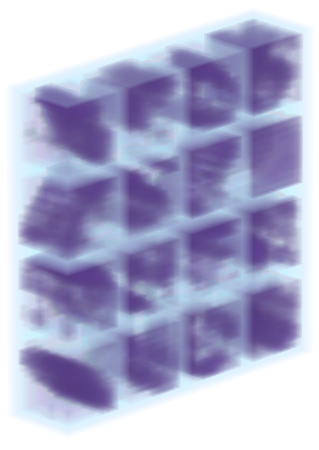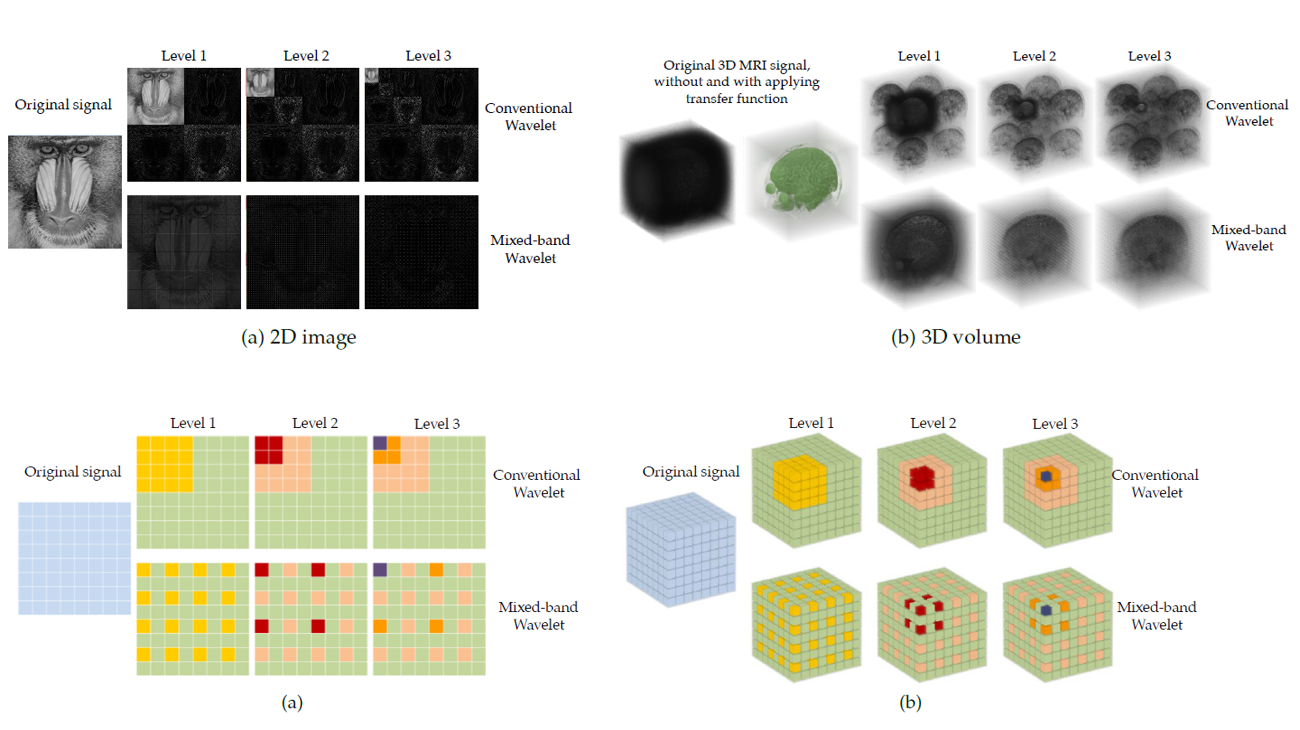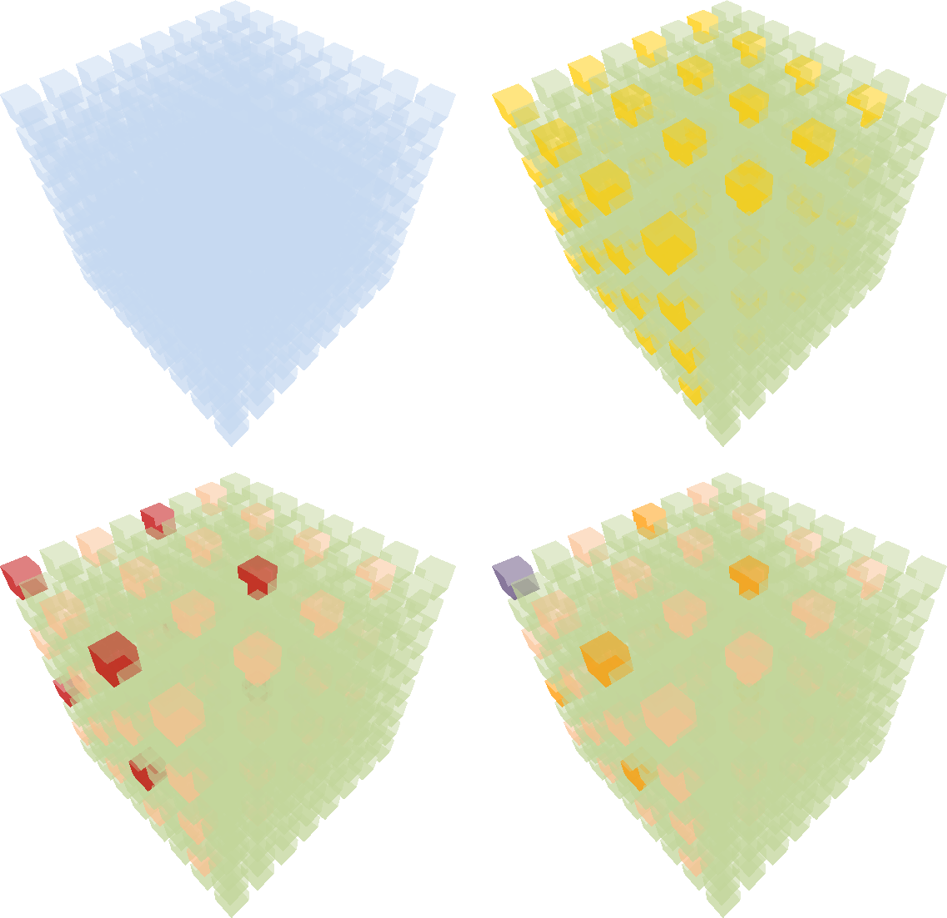GPU Computing has drawn many attractions from diverse fields in either academic or industry. Based on its own physical design, the increasing of Arithmetic Logic Units and reducing Control Units force programmers to rethink about their problems and make insights that be able to map those problems onto GPU architecture, where thousands of massively parallel threads are greedy to race. For instance, Deep Convolutional Neural Network could be impractical to be processed without the support from the GPUs. In HVCL, we are interested in using multiGPU-cluster to solve several Sparsity problems such as Sparsity Transforms like Wavelet, Sparsity Reconstruction in Compressed Sensing MRI using data-driven approach.
This research direction is centered around GPU-accelerated computing on biomedical image processing such as classical smoothing methods for undersampled MRI data using sparsifying transforms such as Wavelet transform (ICIP 2014, MICCAI 2015, TPDS 2016), or recently leveraging data-driven machine learning methods to deliver a higher quality of the reconstructed MRI (ISBI 2016, MICCAI 2016).
The developing algorithms focused on unsupervised learning techniques by introducing a fast alternating method for reconstructing highly undersampled dynamic MRI data using convolutional sparse coding which can be 2D (ISBI 2016) or 3D (MICCAI 2016). The proposed solution leverages Fourier Convolution Theorem to accelerate the process of learning a set of filters and iteratively refine the MRI reconstruction based on the sparse codes found subsequently. In contrast to conventional Compressed Sensing methods which exploit the sparsity by applying universal transforms such as wavelet and total variation (MICCAI 2015), the current approach extracts and adapts the related information directly from the MRI data using compact shift-invariant filters. The reconstruction outperforms CPU implementation of the state-of-the-art dictionary learning-based approaches by up to two orders of magnitude.
In those venues of publications, MICCAI, stands for Medical Image Computing and Computer Assisted Intervention, is among the top premier international conferences for medical image analysis with an overall acceptance rate of 25%. The prospective outcomes are also expected to publish in similar titles such as ISBI, MICCAI, TMI, MedIA, etc.
Related publications:





